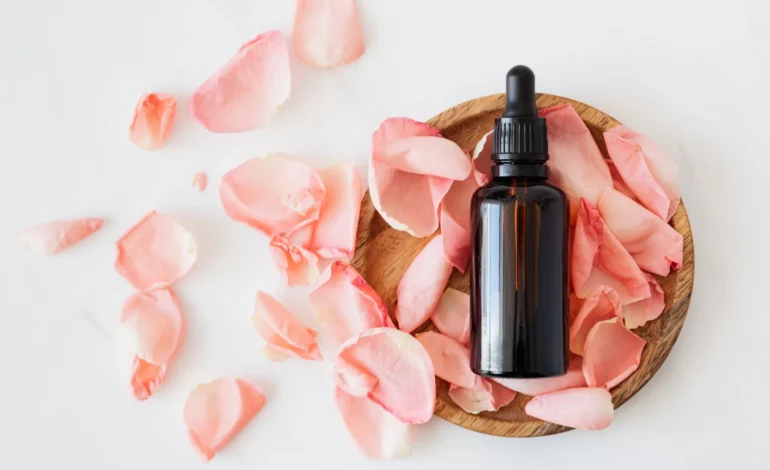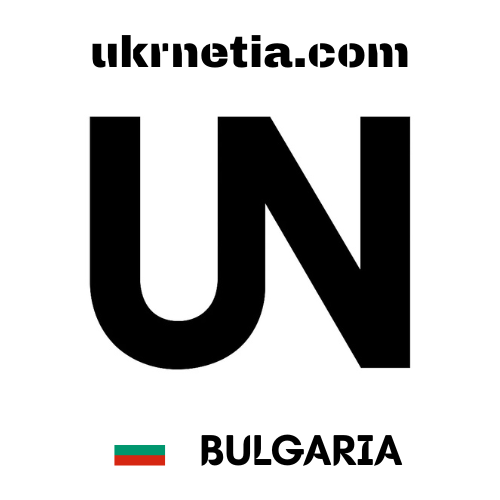Bulgarian Rose Oil: Bulgaria’s Liquid Gold and the Legacy of “Bulgarian Rose – Karlovo”

In a world where natural resources often become symbols of national pride, Bulgarian rose oil stands apart as a true treasure. Dubbed “Bulgaria’s liquid gold,” it not only supplies a significant share of the global essential oil market but also embodies centuries of tradition, culture, and economy. This fragrant elixir, extracted from the petals of the Damask rose (Rosa damascena), is a key ingredient in luxury perfumes from Chanel, Dior, Guerlain, Givenchy, and Lancôme. Its unique quality is recognized by UNESCO as intangible cultural heritage, and Bulgaria produces about 70% of the world’s supply. At the heart of this story lies the Rose Valley, the epicenter of Bulgaria’s perfume industry, and the company “Bulgarian Rose – Karlovo,” one of the oldest producers, founded in 1948. This article dives into the history, production, economic impact, benefits, and global significance of Bulgarian rose oil, revealing why it remains an icon of beauty and heritage.
The History of Bulgarian Rose Oil: From Antiquity to “Liquid Gold”
The story of Bulgarian rose oil traces back to ancient times. Archaeological evidence shows that roses were cultivated in the region of Thrace (modern-day Bulgaria) as early as the 5th–3rd centuries BCE. The Thracians, known for their reverence for nature, used flowers in rituals, cosmetics, and food. However, commercial production of essential oil began much later—in the 16th century, when Ottoman conquerors introduced the Rosa damascena variety from the Middle East. This hybrid rose, originating from Persia and Syria, thrived in Bulgarian conditions: the mild climate of the Rose Valley, fertile soils between the Balkan Mountains and Sredna Gora, with temperate winters and humid spring air, encouraged the accumulation of essential oils in the petals.
By the 19th century, Bulgaria had become a global leader in rose oil production. As early as 1650, rose water was a key commodity in Edirne markets (now Turkey), and Bulgarian producers exported it in special copper vessels called konkumas. The distillation expertise gained from producing rakia (fruit brandy) helped Bulgarians perfect double distillation, yielding three times more oil than Indian or French methods. In 1881, the Karlovo region produced 110,000 bottles of rose water; by 1909, that number rose to 848,000. Bulgarian oil won a gold medal at the 1964 International Congress of Essential Oils in Plovdiv, awarded by UNESCO, confirming its unrivaled quality.
During the communist era (1947–1989), the industry was nationalized, leading to a temporary decline, but after 1989, private producers revived the tradition. Today, Bulgaria exports about 1,370 kg of oil annually at €9,168/kg (2023 data), holding 70% of the global market. In 2014, the EU granted “Bulgarian Rose Oil” Protected Geographical Indication (PGI) status, akin to Champagne or Parmesan. The oil is used in over 4,000 perfume components, making Bulgaria an indispensable part of the global beauty industry.
The Rose Valley: The Heart of Bulgaria’s Perfume Heritage
The Rose Valley (Rozova dolina) is a picturesque region in central Bulgaria, stretching from Karlovo in the west to Kazanlak in the east, covering about 1,300 hectares. Situated 200–300 meters above sea level between the Balkan Mountains and Sredna Gora, it is ideal for Rosa damascena: sandy, permeable soils without clay, ample sunlight, and humidity ensure high oil content—up to 0.05% in the petals. The climate, with mild winters (around 0°C) and rainy Mays, triggers blooming in late May to early June, when the harvest begins.
Today, the valley boasts 5,367 hectares of rose plantations tended by 2,943 registered producers. Roses are planted in November, bloom in the second year, and a bush yields for 8–10 years, peaking at 30–40 with proper care: pruning, fertilizing, and soil treatment. The annual harvest—7,000–8,000 tons of petals—yields 1,400 kg of oil. The valley is not just an economic hub but a cultural one: it hosts the Rose Festival in Kazanlak (first Saturday of June), featuring parades, dances, the crowning of the “Rose Queen,” and distillation demonstrations. Tourists can join petal-picking at 5 a.m. or visit museums in Kazanlak (with 15,000 exhibits) or Karlovo.
Economically, the valley supports 10,000 families (about 45,000–50,000 people) and 67 distillation companies. Exports generate millions of euros, boosting tourism: field tours, tastings of rose water, jam, or rakia attract thousands. Challenges exist: climate change accelerates blooming (the 2024 harvest started three weeks early), labor shortages, and competition from Turkey and Iran. Yet, the valley remains a symbol of Bulgarian identity, with the rose featured on Kazanlak’s coat of arms and in folklore as a symbol of love and purity.
Production of Bulgarian Rose Oil: Tradition Meets Technology
Producing rose oil is an art form blending manual labor and modern science. The process begins with petal harvesting at dawn (4–6 a.m.), when oil content peaks due to dew. Women in traditional costumes snip flowers with scissors, filling willow baskets—up to 30 kg at a time. From 3,500–4,000 kg of petals comes 1 kg of oil, making the process labor-intensive: the season lasts 20–30 days, involving thousands of pickers.
Distillation is the critical step. Bulgarians pioneered double distillation in the 17th century: petals are placed in copper stills (gyulpanas), covered with water, and heated with steam. The first distillation yields rose hydrosol (water); the second produces pure otto (oil). Modern factories, like those of “Bulgarian Rose – Karlovo,” use cooling barrels for steam condensation, preserving the aroma. The oil—colorless, with over 300 components (citronellol, geraniol, nerol)—is tested at the Rose Institute in Kazanlak. Absolute (concentrate) is obtained via solvent extraction for perfumery.
Sustainability matters: organic farms (certified under EC 834/2007) avoid pesticides, and waste is repurposed into compost or jam. The price—$10,000–$15,000/kg—reflects rarity: the global market is $12 billion, projected to double by 2030.
“Bulgarian Rose – Karlovo”: A Guardian of Heritage
Founded in 1948 in Karlovo—the heart of the Rose Valley—“Bulgarian Rose – Karlovo” is one of Bulgaria’s oldest brands. It began with oil distillation, but by 1950 launched absolute, essential oil, and concrete production. In 1960, the “Synthese” plant was built for aromatic compounds for soaps and detergents. The 1970s saw integration of rose water, lavender alcohol, and flavorings for toothpaste and tobacco. The 1980s introduced phyto-washing shampoos. Post-1989, factories in Karlovo, Kazanlak, Plovdiv, Gorna Oryahovitsa, and Shumen merged under one brand.
Today, the company supplies perfume houses in Grasse (France) and exports to over 40 countries: China (a 40 million BGN contract since 2018), Vietnam, South Korea, the USA, Russia, Australia, and Japan. Its products include natural cosmetics (creams, lotions, shampoos with rose oil and yogurt), perfumes, essential oils, candles, and soaps. The Rose Joghurt line combines Bulgarian yogurt with oil for moisturizing dry skin. Its own distillery ensures 100% natural ingredients, and a museum in Sofia showcases the process. The company upholds tradition: seasonal labor, organic ingredients, and certification. Its oil powers Chanel No. 5, Dior Addict, and Guerlain Idylle, underscoring its global impact.
Bulgarian Rose Oil in Luxury Perfumery: The Scent of Fame
Bulgarian rose oil forms the backbone of 80% of rose notes in premium perfumes. Its multilayered aroma (honeyed, with indole, spices, and green notes) is irreplaceable. Chanel uses it in No. 5 (solvent-extracted) and Coco (0.5% absolute). Dior features it in Addict (while cultivating Rose de Granville, it imports from Bulgaria). Guerlain incorporates it in Idylle (Thierry Wasser) and Nahema (0.5% absolute with α-damascone). Givenchy, Lancôme (Poême), Bvlgari (Omnia Amethyste with iris), Estée Lauder, Kenzo, and Paco Rabanne all rely on Bulgarian oil for its quality.
In 2023, Bulgaria supplied oil for 2.3 million perfume bottles. Synthetic alternatives (rose oxide, damascenone) are cheaper, but natural Bulgarian oil is elite, used at 0.5% in formulas. It adds elegance: freshness in top notes, depth in the base.
Benefits of Bulgarian Rose Oil: For Beauty and Health
Bulgarian rose oil is a health elixir with over 100 active compounds (vitamins A, C, E, antioxidants). In cosmetics, it moisturizes (lipids retain water), regenerates tissue, slows cellular aging, acts as an antiseptic (treats acne, redness), and is anti-inflammatory (for sensitive skin). It’s used in creams, masks, and serums, like Rose Clay Mask for cleansing.
In medicine, it’s an antidepressant (reduces anxiety and depression, calms postpartum moods), analgesic (eases back pain in pregnancy), and aids bile ducts, chronic cholecystitis, and asthma. Aromatherapy relaxes, balances hormones, and raises vibrations (highest on Earth). Traditionally an aphrodisiac, it benefits heart, skin, and hair. Low toxicity allows culinary use (tea, jam).
Studies (13 clinical trials) confirm relaxation, antioxidant effects, and pain relief. It’s used in spas, wellness, and food.
Economic and Cultural Impact: From Heritage to Tourism
Rose oil drives a $12 billion market, with Bulgaria leading at 70% of exports, generating millions for 50,000 people. It supports perfumery, cosmetics, and tourism: the Rose Festival draws thousands, and eco-tours visit 15 factories with demonstrations. Culturally, UNESCO recognized harvesting and distillation as heritage (widely known since 2019). The rose is Bulgaria’s symbol, in folklore and art.
Challenges include climate (early 2024 blooming), competition, but organic production and tourism (museums, festivals) ensure resilience.
The Future of Bulgarian Rose Oil: Challenges and Prospects
With rising demand for naturals (market to double by 2030), Bulgaria invests in organics and R&D. Companies like “Bulgarian Rose – Karlovo” expand: new products, Asian markets. Climate threatens, but adaptation (greenhouses, resilient varieties) helps. Tourism grows with VR tours and eco-products. Rose oil is more than business—it’s a legacy uniting generations.
The Scent of Eternity
Bulgarian rose oil is more than an essence: it’s Thracian history, Rose Valley tradition, the genius of “Bulgarian Rose – Karlovo,” and the soul of luxury perfumes. From dawn harvesting to Chanel bottles, it inspires, heals, and enriches. In a synthetic world, it reminds us of nature’s power. Visit the Valley—experience the “liquid gold” that blooms forever.







